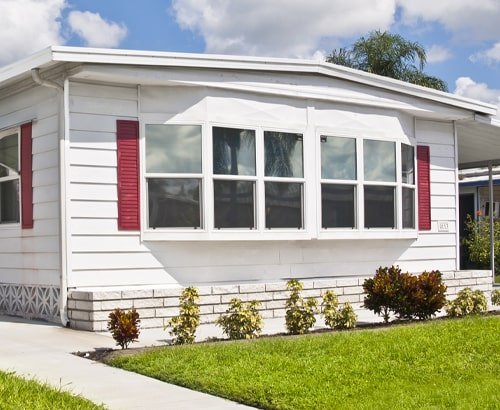Comprehensive Guide to Renting a House in Kuala Lumpur

Are you dreaming of making Kuala Lumpur your new home? The bustling capital city of Malaysia offers an exciting blend of modern skyscrapers, historic landmarks, and vibrant neighborhoods. Whether you’re moving for work, study, or a fresh start, renting a kuala lumpur house for rent can be a thrilling yet daunting experience. This guide will walk you through everything you need to know about finding and renting a house in this dynamic city, from understanding the rental market to signing the lease. Let’s dive in!
Understanding the Kuala Lumpur Rental Market
The rental market in Kuala Lumpur is diverse and competitive. With various options ranging from high-rise condominiums to traditional houses, it’s crucial to understand the local market trends and pricing. Researching different neighborhoods, comparing rental rates, and identifying your budget are essential first steps.
Kuala Lumpur’s rental prices can vary significantly depending on the location, size, and type of property. For example, houses in upscale areas like Bangsar or Mont Kiara may come with a hefty price tag, while more affordable options might be found in suburbs like Cheras or Damansara. Being aware of these variations will help you make an informed decision.
Engaging with local real estate agents or utilizing online property portals can provide valuable insights into the current market conditions. They can guide you through the complexities of the rental process and help you find a property that suits your needs and preferences.
Choosing the Right Neighborhood
Selecting the right neighborhood is a crucial aspect of renting a house in Kuala Lumpur. Each area has its unique charm, amenities, and lifestyle. Whether you prefer the bustling city center or a quiet suburban retreat, understanding the characteristics of different neighborhoods will help you make the right choice.
Bangsar is known for its trendy cafes, boutique shops, and vibrant nightlife, making it a popular choice among expatriates and young professionals. On the other hand, Mont Kiara offers a more residential feel with international schools, parks, and family-friendly facilities.
If you’re seeking a more budget-friendly option, areas like Cheras or Petaling Jaya provide a good balance between affordability and convenience. These neighborhoods are well-connected to the city center and offer various amenities, including shopping malls, restaurants, and public transport.
Setting Your Budget
Determining your budget is a critical step in the rental process. It involves more than just considering the monthly rent; additional costs such as utilities, maintenance fees, and deposits must also be factored in. Setting a realistic budget will help you narrow down your options and avoid any financial strain.
A general rule of thumb is to allocate about 30% of your monthly income towards housing expenses. This percentage can vary depending on your financial situation and lifestyle preferences. Make sure to include other living expenses such as groceries, transportation, and entertainment in your budget planning.
Discussing your budget with a real estate agent can also provide clarity on what you can afford. They can offer recommendations based on your financial situation and help you find properties that align with your budget.
Finding a Reliable Real Estate Agent
Working with a reliable real estate agent can make the house-hunting process smoother and more efficient. A good agent will have extensive knowledge of the local market, access to exclusive listings, and the expertise to negotiate favorable terms.
When choosing an agent, look for someone with a solid reputation and positive client reviews. Personal recommendations from friends or colleagues can also be valuable. Ensure that the agent understands your needs and preferences and is committed to helping you find the right property.
A trustworthy agent will guide you through each step of the rental process, from property viewings to signing the lease. Their assistance can save you time and effort and help you avoid potential pitfalls.
Exploring Online Property Portals
In today’s digital age, online property portals have become a popular tool for finding rental properties. Websites offer extensive listings with detailed descriptions, photos, and virtual tours. These platforms allow you to search for properties based on location, budget, and other preferences.
Using online property portals can give you a comprehensive overview of the available options and help you compare prices and features. Many of these platforms also provide contact information for real estate agents and landlords, making it easier to schedule viewings and gather additional information.
While online portals are convenient, it’s essential to verify the authenticity of the listings and exercise caution when dealing with unknown agents or landlords. Always double-check the details and arrange physical viewings before making any commitments.
Scheduling Property Viewings
Once you’ve identified potential properties, scheduling viewings is the next step. This allows you to assess the condition of the house, its layout, and its surroundings. Look for signs of wear and tear, check the functionality of appliances, and ensure that the property meets your expectations.
When viewing a property, don’t hesitate to ask questions about the lease terms, maintenance responsibilities, and any additional costs. Taking notes or photos can help you remember the details and compare different options later.
It’s advisable to view multiple properties to get a sense of the market and find the best fit. Be flexible with your schedule and allow sufficient time for each viewing to thoroughly evaluate the property.
Understanding Lease Agreements
Lease agreements are legally binding documents that outline the terms and conditions of the rental arrangement. It’s crucial to read and understand the lease thoroughly before signing. Key elements to look for include the rental amount, payment schedule, security deposit, lease duration, and termination clauses.
If you have any doubts or concerns, seek clarification from the landlord or real estate agent. It’s also wise to have a legal professional review the lease to ensure that your rights are protected and that there are no hidden clauses.
Understanding the lease agreement will prevent misunderstandings and disputes in the future. Make sure to keep a copy of the signed lease for your records.
Moving In and Setting Up Utilities
After signing the lease, the next step is moving in and setting up utilities. This includes arranging for electricity, water, gas, internet, and other essential services. Some properties may have these utilities already connected, while others may require you to set them up yourself.
Contact the relevant service providers and arrange for the connections to be activated before your move-in date. This will ensure a smooth transition and prevent any inconvenience. Don’t forget to take meter readings on the day you move in to avoid any discrepancies in future bills.
It’s also a good idea to familiarize yourself with the neighborhood and locate nearby amenities such as grocery stores, pharmacies, and public transport. This will help you settle in quickly and comfortably.
Joining the Local Community
Becoming part of the local community can enhance your living experience in Kuala Lumpur. Engaging with neighbors, participating in community events, and joining local clubs or organizations can help you build connections and feel more at home.
Many neighborhoods in Kuala Lumpur have active community groups that organize social activities, sports events, and cultural celebrations. Joining these groups can provide opportunities to meet new people, share experiences, and contribute to the community.
Networking with other expatriates or locals can also offer valuable insights and support as you adjust to your new environment. Don’t hesitate to reach out and get involved in community activities.
Maintaining the Property
Maintaining the rental property in good condition is essential for a comfortable living experience and to avoid any disputes with the landlord. Regular cleaning, timely repairs, and proper use of appliances will help keep the property in top shape.
If any maintenance issues arise, inform the landlord or property manager promptly. It’s important to document any problems and keep records of repair requests and communications. This will protect your rights and ensure that necessary repairs are carried out.
Following the terms of the lease agreement regarding maintenance responsibilities will help maintain a positive relationship with the landlord and ensure a smooth tenancy.
Renewing or Terminating the Lease
As the end of your lease term approaches, you’ll need to decide whether to renew or terminate the lease. If you wish to continue living in the property, discuss the renewal terms with the landlord well in advance. This may involve negotiating the rental amount or making any necessary amendments to the lease.
If you decide to terminate the lease, follow the notice period and other requirements specified in the lease agreement. Ensure that the property is in good condition and that any outstanding payments are settled. Conducting a final inspection with the landlord can help address any issues and facilitate the return of your security deposit.
Planning the renewal or termination process in advance will prevent any last-minute complications and ensure a smooth transition.
Conclusion
Renting a house in Kuala Lumpur can be an exciting adventure with the right preparation and guidance. By understanding the local rental market, choosing the right neighborhood, setting a realistic budget, and following the steps outlined in this guide, you’ll be well-equipped to find your ideal home.
Remember, the key to a successful rental experience is thorough research, clear communication, and proactive management. Whether you’re staying for a few months or planning a long-term stay, Kuala Lumpur offers a vibrant and welcoming environment for all.
